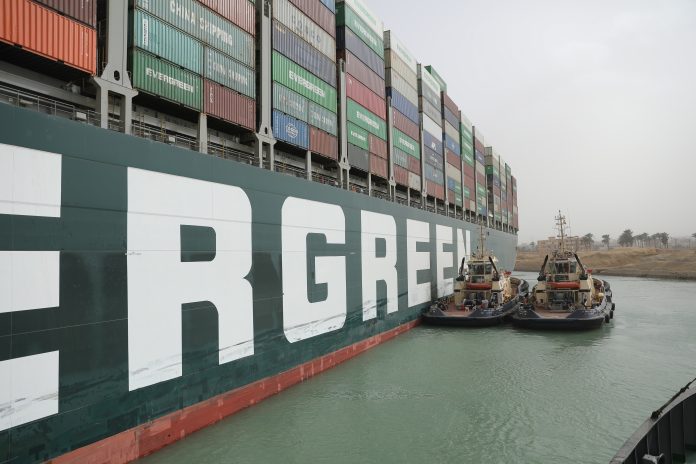Too often crew are used as a pawn in a legal chess match between owners and authorities. Sometimes that can lead to seafarers being stranded, sometimes for years, as with Mohammad Aisha, through no fault of their own. It is clear that the maritime community must stand in solidarity with these crew who are denied their rights, writes Nick Savvides.

This week a seafarer went home. This should not be the subject of great wonder, but this particular sailor had been held in effective captivity for four years aboard a ship that he had worked on but did not own.
On 22 April the International Transport Workers Federation (ITF) announced his departure from a ship that had been detained by Egyptian authorities due to expired certification for safety equipment, and the owner duly abandoned the vessel and its crew.
An Egyptian court then designated Mohammad Aisha, the chief officer who had been on board for just two months, as the legal guardian of the vessel until the ship was sold or another guardian was found. That was in 2017, by 2019 the rest of the crew had been repatriated.
Last year a storm saw the ship run aground and with no power and an infestation of insects and rats, conditions on board and the Aisha’s own condition were deteriorating fast. Finally after four years, the irony of Aisha’s release at the very time that the Egyptian authorities had impounded the Ever Given cannot be lost on the container ship’s Indian crew.
So while Mohammad Aisha boarded an airplane to return to home to Syria, ending a four-year battle where he was forced to live on an abandoned ship in the Suez Canal while the vessel waited to be sold, the crew of the Ever Given are beginning their own possible isolation in the Great Bitter Lake.
Clearly there are major differences in the two events. Few people had heard of the MV Aman, Aisha’s ship until recently. The defects on the vessel drew little response from the international media and Aisha’s predicament had received little or no publicity until recent reports from the ITF highlighted his plight. In contrast the Ever Given was widely reported as one of the world’s most important waterways was blocked for six days, with the fear that it could take weeks or months to refloat the vessel.
It is important now that as the media attention turns away from the critical globally significant event that the crew are not abandoned to a similar fate that befell Mohammad Aisha.
Abdulgani Serang, of the National Union of Seafarers of India an ITF affiliate has been in contact with the crew, who are employed by the technical manager Bernard Schulte Shipmanagement (BSM), believes that the crew will be exonerated of any blame for the accident.
Serang told Container News, “If the seafarers were under question they would not be allowed to leave.” A second engineer and the electrical technical officer were replaced according to Serang, with another master having been added to the crew, bringing the number of personnel aboard the vessel up to 26 seafarers.
Moreover, it is understood by the ITF, ahead of the conclusions of any investigation into the incident that are now taking place, that the accident was an “Act of nature,” and that “Our contacts in the SCA [Suez Canal Authority] and the local union,” that there were no technical issues with the vessel and that the “professionalism of the seafarers was not in question,” according to Serang. Therefore the crew would not be apportioned blame for the grounding and that the crew will, “come out clean”.
Nevertheless, the ITF executive board are sufficiently concerned to have issued a statement reinforcing the union’s backing for the crew and calling for the Egyptian authorities to allow the crew to be repatriated when their contracts expire.
“At their meeting on 23 April 2021, the ITF Executive Board is calling on the Egyptian authorities for the 25 seafarers on board the MV Ever Given to be repatriated at the normal conclusion of their contracts, if the ship cannot leave Egypt any time soon.”
With the Indian Maritime Administration watching events closely and the media also keeping a close eye on how events unfold in the Egyptian courts it may prove a much tougher task for the authorities to hold the crew.
A reported claim of US$916 million is seen by some as excessive. One company said “It is unclear how this sum has been calculated,” by the SCA. The total demand is said to include a US$300 million claim for loss of reputation and a further US$300 million as a ‘salvage bonus’ while the remainder covers the cost of salvage, lost revenue and fines.
Needless to say the Japanese owners, Shoei Kisen Kaisha, and BSM dispute the claim and with further reports that the vessel may be arrested again by the Panamanian register, the vessel is flagged with the Panamanian authority, the legal complications could delay the vessel for far longer than it blocked the canal.
The ITF rightly point out that, “Shipping has not stopped at any stage during the Covid-19 pandemic. Seafarers have been at the forefront working under extremely challenging circumstances, and they kept global trade going through this unprecedented health and economic crises.”
It is right that the SCA is sensibly compensated for the accident that occurred in what is a critical maritime thoroughfare, but it is not right for the crew to be held hostage.
It is not a victory that Mohammad Aisha has flown home after four years tied to a vessel he did not own and could not repair. It is a failing on the part of the Egyptian authorities, the maritime regulations and the international maritime community that one man was made to suffer for four years for the failings of others. The crew of the Ever Given must not be resigned to the same fate.
 Hotline: 0944 284 082
Hotline: 0944 284 082
 Email:
Email: 


 VN
VN